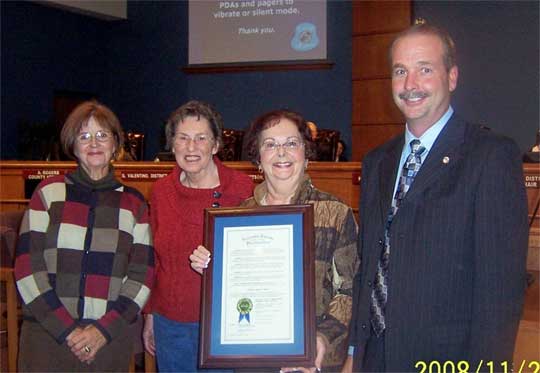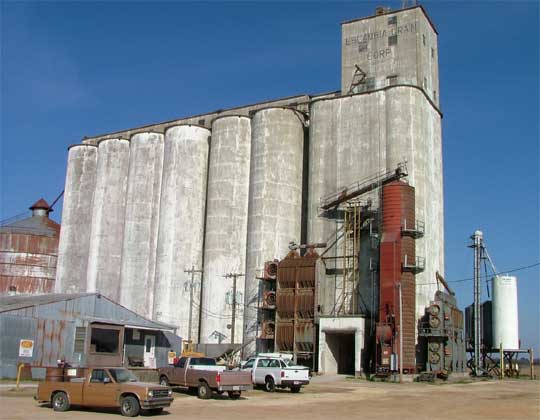Farm-City Week Recognizes Importance Of Agriculture
November 26, 2008
Before sitting down to Thanksgiving dinner, the Florida Farm Bureau would like everyone to remember that the meal they will enjoy is made possible by Farm-City partnerships.
National Farm-City Week, celebrated annually on the week leading to and ending on Thanksgiving Day, recognizes the importance of this cooperative network to the success of America’s agricultural industry.
The following was submitted by Dorthy Cunningham from the Escambia County Farm Bureau Women’s Committee.
As wise steward and innovative entrepreneurs, dedicated farmers and ranchers improve our well-being by working to ensure a healthy and abundant agricultural supply. To succeed in this important enterprise, our farmers rely on essential partnerships with urban communities to supply, sell and deliver finished products across the country and around the world. National Farm-City Week recognizes the importance of this cooperative network to the success of America’s agricultural industry.
Escambia County Farm Bureau and the Women’s Committee will be recognizing the importance of the connection and partnership that exists between rural farmers and urban residents. Escambia County Farm Bureau Federation believes that events and activities of Farm-City Week will created a greater awareness of the types and sizes of farms in our area. In a county as diverse and geographically divided as Escambia County, agricultural industries are not often at the forefront of the overall population’s attention. It is the intent of the Escambia County Women’s Committee to highlight the agricultural industries that contribute to the our county’s continued economic well-being and encourage consumers to support local agriculture.
Here in Escambia County, agricultural enterprises include forestry, cotton, peanuts, wheat, corn, fruits, vegetables, livestock, and dairy. Traditional row crop and livestock production utilizes more than 30,000 acres, while 250,000 acres are used to produce timber. Together, the value of agricultural, silvicultural, and livestock was worth more than 386 million by 2007 estimates. Our farmers are known for “going green”– local producers are true stewards of our land and want to keep the environment safe for future generations to farm and enjoy. Farm-City Week is the ideal time to get the good word out about farming.
National Farm-City Week strives to increase understanding, cooperation, and relationships between rural and urban residents. As this year’s commemoration again culminates on Thanksgiving, all Americans are encouraged to thank someone who helps make it possible for you and your family to enjoy the bounty of our food supply. It’s a partnership summed up best whether you are from the farm or the city as, “Let’s eat!”
Escambia County Farm Bureau Federation represents local agricultural interests. Its mission is to implement policies that are developed by members and provide programs that will improve economic well-being an quality of life for farmers and ranchers.
For more information about Farm-City Week and local activities, please contact Dot Cunningham at (850) 587-5553. For more information about local agriculture, contact Libbie Johnson at the UF IFAS Escambia County Extension Office at (850) 475-5230.
Pictured top (L-R): Jane Breaul, Martha Carpenter and Dorothy Cunningham from the Farm Bureau Women’s Committee; and Escambia Commissioner Kevin White with the proclamation of Farm-City Week in Escambia County. Pictured middle: Escambia Grain in Walnut Hill. NorthEscambia.com photo.
Comments
One Response to “Farm-City Week Recognizes Importance Of Agriculture”





Not sure how the current farmers in the area are doing. I know prices shot up on the old traditional row crops a while back, but I still don’t know how you make it with the price of equipment, seed, fertilizer, etc. I read recently that the Ag Dept is actually looking to change the public policy toward farming from quantity to a quality slant, which would be great. NC has a large hog and chicken farm operation and when you read how those “farms” operate (the term farm probably shouldn’t be used with these factories) it makes you reconsider where you buy your pork and chicken. I think the future will be a balance of the traditional farming as developed in the 60’s till now and what we today term organic farms for locally sourced vegetable, fruit and meat. Funny thing is “organic” farms seem more like true farms than the current operatons. I’d also suggest anyone wishing to look at the production of food in the country from a different angle read Michael Pollen’s book “Omnivore’s Dilemma”.